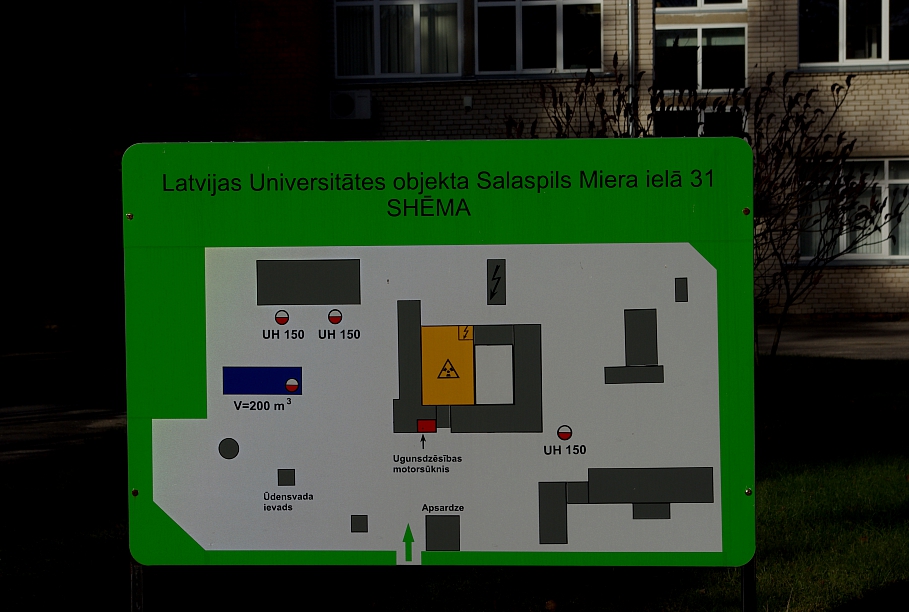The long-standing deal with the University of Latvia will end on April 1, after which the Environment, Geology and Meteorology Center will take over maintenance of the reactor, Environmental Protection and Regional Development Ministry deputy state secretary Alda Ozola told the press.
The ministry today presented several proposals to the government regarding the short- and long-term maintenance of the reactor. The short-term solutions stipulate that approximately EUR 300,000 will be needed to keep the reactor facility in proper order this year.
The long-term solution is to dismantle the facility to the point where it no longer poses danger to the environment. The total cost of the project could be around EUR 5.5 million, and it would take about four years to complete. The Environmental Protection and Regional Development Ministry would have to seek new funding from the state budget every year for the new policy initiative.
This means that the dismantling of the reactor will continue on a regular basis according to funds allocated for the purpose.
University of Latvia Vice Rector Indrikis Muiznieks expressed his pleasure with the government's decision, as the university will no longer be responsible for maintaining the stalled project. On January 19 the University announced that it was considering withdrawing from maintenance of the Salaspils Nuclear Reactor.
According to the university's estimates, maintenance of the Salaspils Nuclear Reactor requires approximately EUR 285,000 this year and about EUR 200,000 a year in 2016 and 2017.
The government decided that the reactor had to be razed already in 2009, however, the funds necessary for this still have not been allotted. Last year the government spent EUR 118,891 on emergency maintenance chores.
On her part Prime Minister Laimdota Straujuma expressed disappointment with the way the matter has dragged on for nearly a decade.
“I am somewhat surprised that in the past ten years funding has not been sought from EU resources,” she said, adding she sees “no excuse for why this has been left unresolved.”
On December 23, it was reported that a small amount of radioactive tritium had leaked from the reactor, however contamination to the environment had been averted in a timely fashion thanks to vigilant monitoring.
Later experts warned that future leaks might not benefit from such timely discovery and risk contaminating the environment.





























